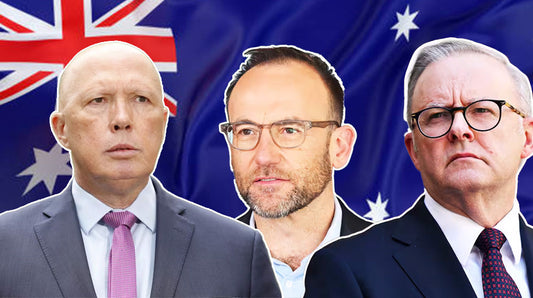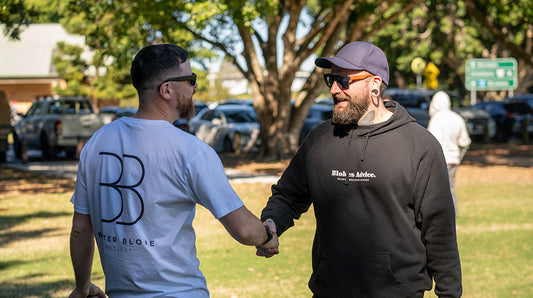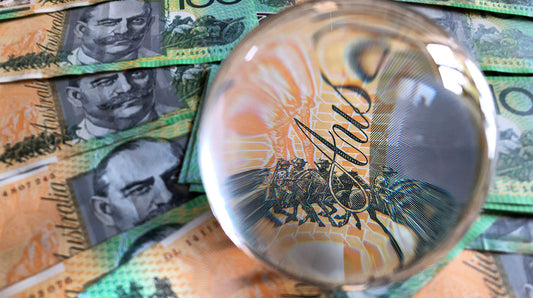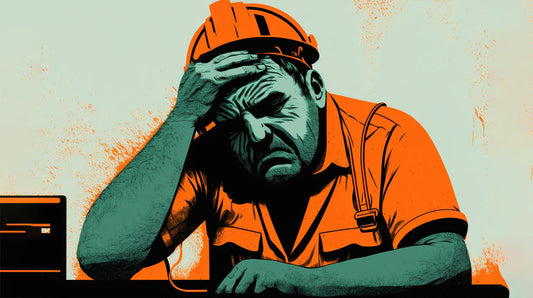In a world where the stoic image of masculinity still holds strong, the slogan "It ain't weak to speak" emerged encouraging men to break the silence around their mental health struggles. At face value, it dismantles decades of social norms that equate emotional expression with weakness, particularly in men.
That said, peeling back the layers reveals a pretty complex relationship between encouragement to speak and the necessity of actionable steps towards mental wellness.
The Psychology of Speaking Out
At its core, the message to get blokes opening up about their struggles is undeniably positive. Psychology supports the idea that acknowledging and speaking about feelings is a crucial first step in the healing process. It reduces stigma and isolation by fostering a sense of community and support. However, this message carries an underlying assumption that merely talking about problems is enough to fix them, which might inadvertently normalise the state of suffering without emphasising the crucial next steps: action and accountability.
Beyond Words: The Need for Accountability
Improving your mental health is a journey, involving much more than just speaking out. It requires a person to take responsibility for their own well-being, and actually do the behaviours that will result in the change you want. Men, in particular, likely won’t find peace in reassurances that "things will be okay" if they do not also embrace the responsibility to change.
Accountability in this context means recognising your own role in becoming a better bloke. It involves setting goals, whether they're related to seeking professional help, hitting the gym, investing in relationships, or chase the hobbies that give you a sense of purpose and pride. These actions are vital in transforming the narrative from one of passive suffering to active recovery.
What's the Blokes Advice merch about? It's a conversation starter. See a bloke... have a yarn.
The Psychological Payoff of Mental Health Problems
Addressing the uncomfortable question, "What are your mental health problems giving you?" reveals a lot about why some may not move past acknowledgment to action. This question isn't to place blame but to uncover hidden benefits that a state of suffering might provide, such as attention from others or an excuse to avoid certain responsibilities.
This concept, known in psychology as secondary gain, pretty much suggests there can be an underlying payoff for remaining in a shit place. Recognising and confronting these payoffs requires honesty and courage. While mental health issues are not a choice, the decision to remain trapped by them might be influenced by these hidden benefits.
The Balance: Empathy and Action
The message to men struggling with mental health issues needs to balance empathy with empowerment. Encouraging speech as a form of release and connection is crucial, but it should be coupled with the message that speaking is the beginning of a journey. The ultimate goal is to inspire not just conversation but transformation, guided by YOURSELF and supported by the people around you.
"It ain't weak to speak" serves as a powerful counter to those harmful stereotypes. By all means, let us tell blokes that their voices matter and their feelings are valid. But let's also remind them that their power lies in using those voices to kick start action, leading them towards a life filled with purpose, pride, and personal fulfilment.
So, next time you're feeling a bit off, remember, your mates are there. And if they're not, we are. A problem shared is a problem halved. Let's keep the conversation and the beers flowing & cheers to being better blokes.
You should consider if this information is right for you and seek advice from professional services if necessary. Blokes Advice Co Pty Ltd does not accept legal liability or responsibility for the content of the advice or information or any consequences arising from its use.









